研究/Research
Suzuki laboratory is engaged in research on epithelial stem cell biology to elucidate the mechanisms regulating epithelial homeostasis and diseases. The questions to be addressed in our laboratory include how epithelial stem cells contribute to development of refractory diseases including congenital disorders, immune-mediated diseases (autoimmune/autoinflammation), and cancer. We are also studying the mechanisms regulating epithelial homeostasis through analyzing the p53-family transcription factor p63, a master regulatory gene of epithelial development.
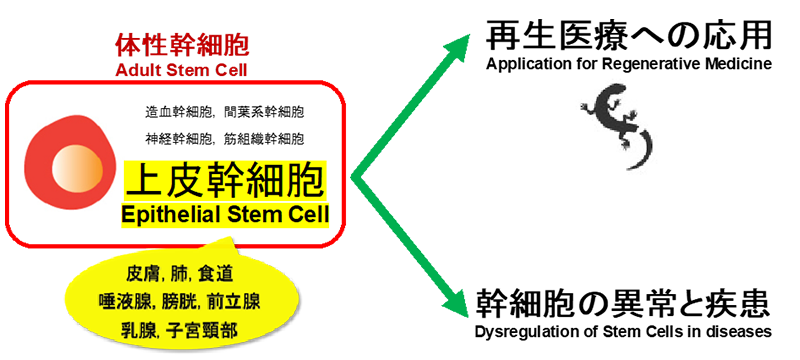
By gene targeting strategy to create animal disease models, our group has discovered that dysregulation of p63 C-terminus is functionally causative of a genetic disorder, known as AEC (ankyloblepharon ectodermal dysplasia and cleft lip/palate syndrome), which is characterized by severe skin erosion, cleft lip/palate, and deformities of the eyelids and limbs (Suzuki D. et al, Development 2015). Functional defect of the p63 C-terminus indeed leads to such phenotypes including ectodermal malformation and hypoplasia, due to a reduced proliferative capacity and exhaustion of epidermal stem cells. Our group has uncovered the molecular mechanisms inducing the loss of epithelial stem cells: deficiency of p63 C-terminus promotes expression of cyclin-dependent kinase inhibitor p21Waf1/Cip1 (Cdkn1a), thereby the stem cells are led to cell cycle arrest and lose the proliferative capacity. The mechanisms to control proliferative potential of epithelial stem cells through the p63 C-terminus is currently being investigated.
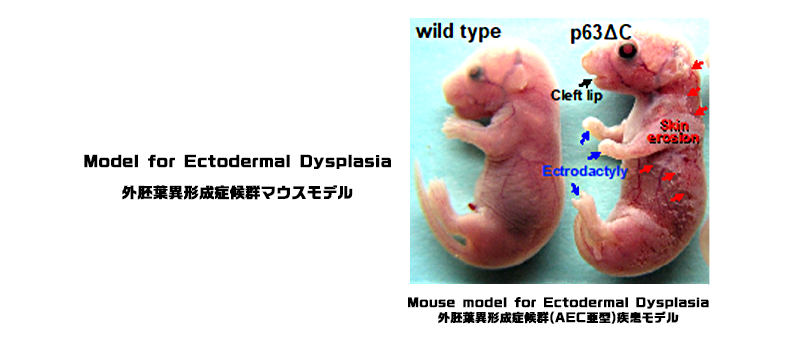
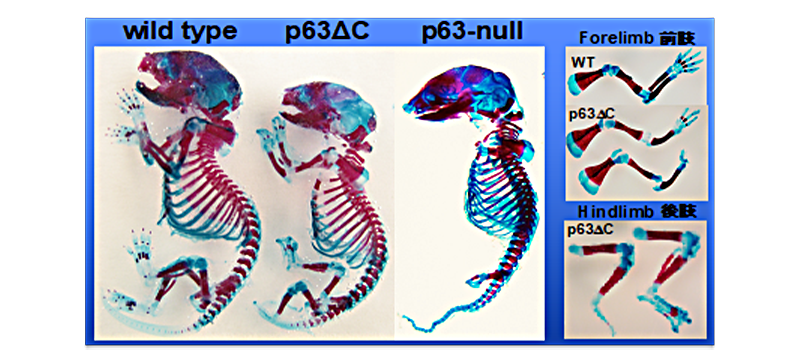
We are also studying molecular mechanisms regulating p63. We have discovered that phosphorylation of p63 protein is accompanied with the onset of stem cell differentiation (Suzuki D. et al, J Invest Dermatol 2012). This highlighted the significance of posttranslational modification of stem cell self-renewal factors in adult stem cells. In addition, our group has recently found that stem cell environment maintaining p63 expression in epithelial stem cells is important for executing sustainable proliferation of epithelial stem cells ex vivo. One of the key findings is identification of a drug, RepSox, a cell-permeable and selective inhibitor of the TGF-β type 1 receptor/ALK5. Inhibition of TGF-β signaling facilitates the expansion of human primary epidermal keratinocytes (HEKs/HPEKs) with high proliferative potential (Suzuki D. et al, WRR 2017). Furthermore, use of RepSox enables long-term propagation of p63+ primary epithelial stem cells in rodents, which has been challenging because of rapid cellular senescence in culture (Suzuki D. et al, Sci Rep 2017).
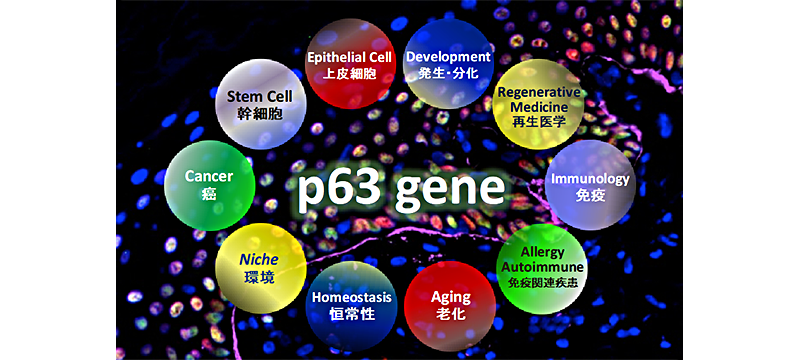
Based on these outcomes, we are further expanding and investigating epithelial stem cell biology with particular emphasis on the following fields:
(1) Mechanisms regulating epithelial homeostasis and diseases
(skin, salivary gland, thymus, cornea, oral epithelium, prostate, cervix, bladder, etc)
(2) Regulation of transcription factor p63
(e.g. phosphorylation, gene expression, splicing, promoter analysis)
(3) Optimizing microenvironment (niche) to maintain epithelial stem cells
(e.g. characterization of 3T3-J2 cells, Wnt/TGF-β signaling through Dact1)
(4) Cellular senescence and epithelial identity
(5) Regenerative medicine and tissue engineering for epithelial tissues
(6) Epithelial stem cells and cancer
(7) Immune regulation by epithelial cells
(8) Production of animal models (e.g. genetically modified mice, humanized mice)
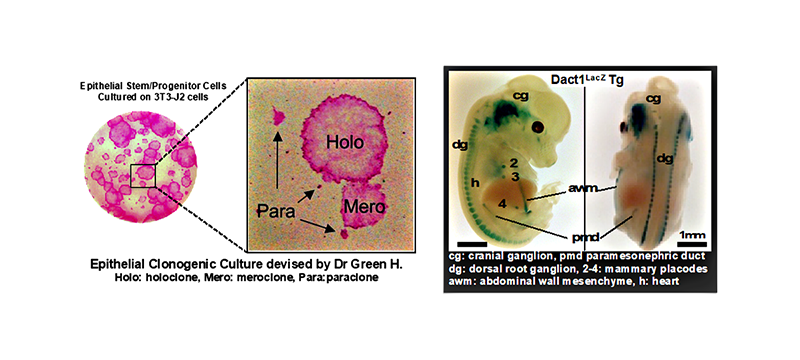
Scientific Focus Areas
Epithelial Stem Cell Biology, Molecular Biology, Pathological Biochemistry, Developmental Biology, Laboratory animal science, Immunology, Genetics and Genomics
Areas of Expertise
1) epithelial stem cells, 2) transcription factor p63, 3) epithelial tissue development and regeneration (skin, cornea, salivary gland, thymus, airway/trachea, esophagus, etc), 4) congenital diseases, 5) cancer, 6) autoimmune diseases
日本語版 (追って作成します)
日本語キーワード:
上皮細胞、幹細胞、p63、p53ファミリー転写因子、外胚葉異形成症候群、疾患モデル、実験動物、ヒト化マウス、遺伝子改変マウス、上皮組織(皮膚、唾液腺、胸腺、角膜、口腔、舌、食道、気道、膀胱、子宮など)、Wnt、TGF、免疫疾患(自己免疫疾患・アレルギー疾患)、病理、基底細胞、細胞、発生、増殖、分化、自己複製、遺伝子、シグナル、再生、恒常性、創傷治癒、医学、生化学、分子生物学、発生学、希少難病、病気、がん、3T3-J2、HPEKs、EMT、骨格標本、奇形、ウイルス遺伝子導入、遺伝子組換え、ゲノム編集、樹脂化






